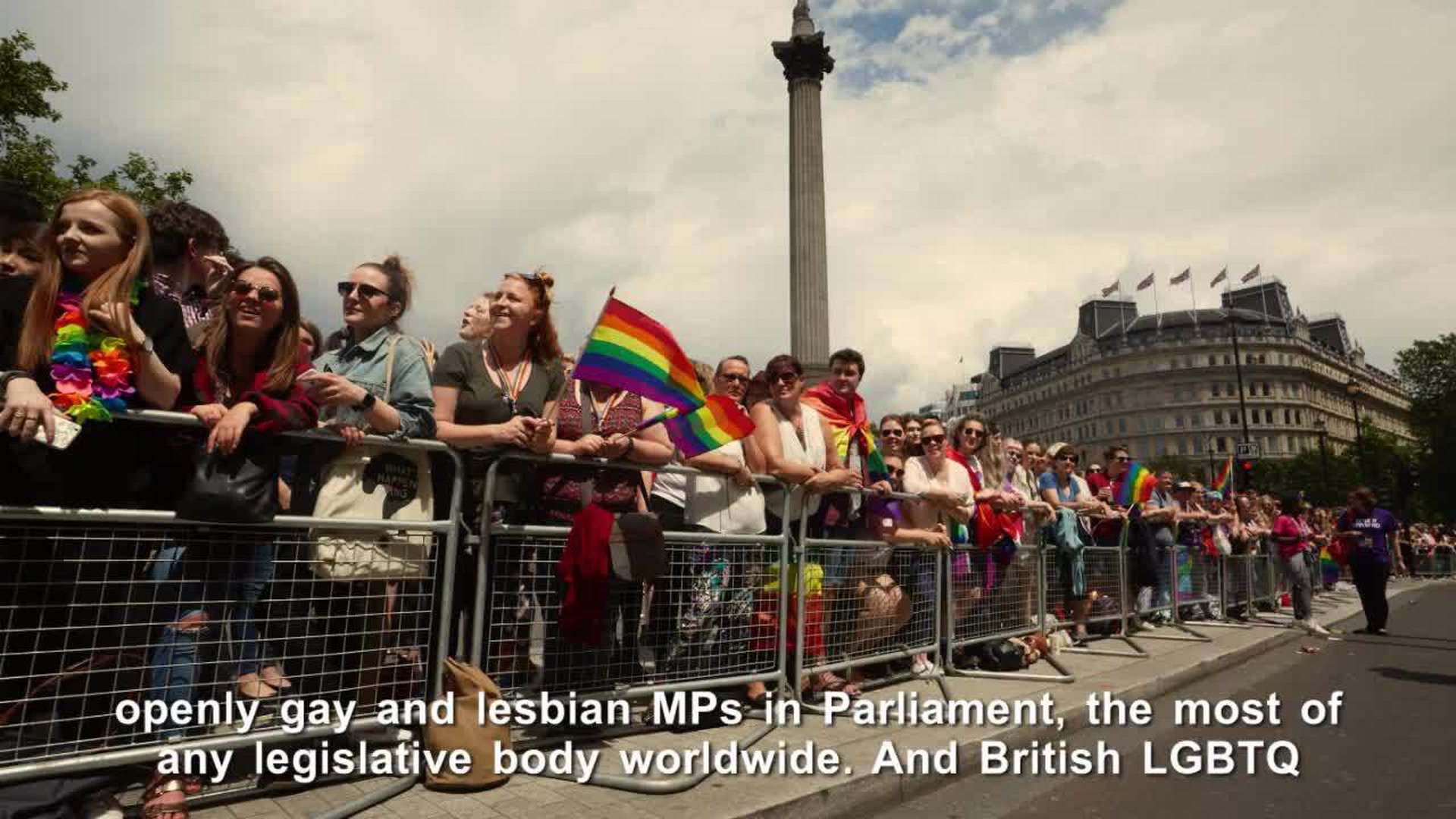Non-topics
US & UK Stand Proudly United This Pride
US & UK Stand Proudly United This Pride

Sir Kim Darroch, British Ambassador to the United States, reflects on LGBTQ equality.
June 08 2017 2:10 PM EST
September 07 2023 3:45 PM EST
By continuing to use our site, you agree to our Private Policy and Terms of Use.
US & UK Stand Proudly United This Pride

Sir Kim Darroch, British Ambassador to the United States, reflects on LGBTQ equality.
Last year, alongside British Embassy colleagues, I walked through the streets of downtown Washington in my first Pride parade. It was a vibrant, colourful event, with massed crowds along the route, and a real sense of enthusiasm and even celebration—a community coming together.
But just one day after the British London double-decker bus wound its way through the Dupont Circle neighbourhood, the American LGBTQ community was rocked by a mass shooting at Pulse nightclub in Orlando. Within just a few minutes, 49, mostly young, people had been murdered. The people of the United Kingdom mourned in solidarity with the American people, as you have with us after the recent terrorist killings in Manchester and London.
Just a few weeks after the horror of Orlando, the 40,000 participants in the London Pride march paused for a minute’s silence to remember those whose lives were sadly cut short.
The parade wasn’t cancelled—just as life will continue in communities around the world that have been marred by tragedy. As Prime Minister Theresa May has said, “As a country, our response must be as it has always been when we have been confronted by violence. We must come together, we must pull together, and united we will take on and defeat our enemies.”
So we’re approaching this year’s Pride celebrations with a mixture of sadness at the recent past, hope for the future, and pride in the progress that has been made. In the UK, we’ve had civil partnerships for over a decade, and equal marriage since 2014. This year, we are marking the 50th anniversary of the beginning of the decriminalization of homosexuality in the UK (though, one might well wonder why it took us so long).
We’ve come a long way in government, as well. The Royal Navy, British Army and Royal Air Force march in full uniform at Pride Parades across UK. And here’s an unexpected fact: who would have thought that, last year, MI5 would be named the UK’s most LGBTQ-friendly employer.
Of course, we have an election later this week. But for now, we have 35 openly gay and lesbian MPs in Parliament, the most of any legislative body worldwide. And British LGBTQ diplomats and government officials serve in our missions around the world, including here in Washington.
But it’s not enough to promote equality and inclusivity in our own public service. We must also make the case for this in the rest of the world, and especially in countries—and there are still some—where there is discrimination against LGBTQ communities. That’s why the Foreign Office has dedicated more than $1 million solely to protecting the rights of LGBTQ persons worldwide.
We’re also thrilled to be a part of the Equal Rights Coalition and its vision as a historic intergovernmental body. Established last summer, it’s already making a strong statement on the global scene—especially when it comes to the persecution of gay men in Chechyna.
These are causes for which the UK will continue to fight. And they will be in my mind as, along with my wife Vanessa and Embassy colleagues, I will again take my place in the D.C. Pride Parade.
